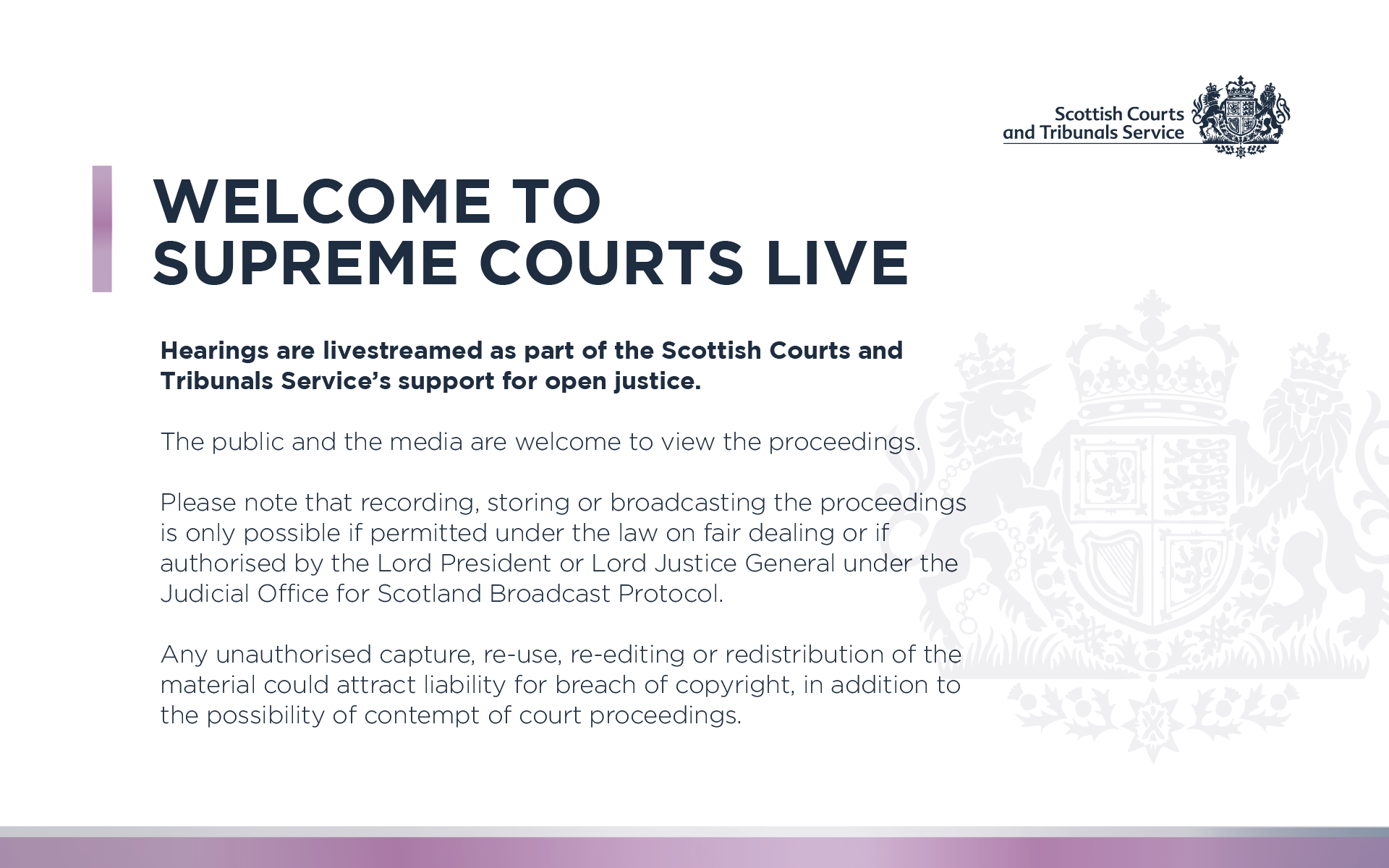Case description
This is a reclaiming motion (appeal) against a decision of the Lord Ordinary not to dismiss part of the pursuers’ action against the defenders.
The Rogano Restaurant and Bar is the oldest restaurant in Glasgow. It traded continuously from 11 Exchange Place from 1874 until it closed due to Covid 19 restrictions during 2020. On 9 and 14 December 2020 and 10 January 2021, the property suffered from flooding, causing substantial water damage. An electrical fire broke out after the first incident of flooding on 9 December, which resulted in the electrics being deemed unsafe and turned off, leaving the premises without heating. There is ongoing water ingress into parts of the premises. As a result of the condition of the property, it has not been possible to reopen the Rogano since cessation of Covid restrictions.
The pursuer, Forthwell UK Ltd, is the tenant of the property. The Rogano is run by its subsidiary company, Lynnet Leisure (Rogano) Limited. The defender, Pontegadea UK Limited, is the landlord. Forthwell argue that the lease requires Pontegadea to rebuild any part of the premises which has been destroyed or damaged by any “insured risk”. The list of insured risks includes the risk of flooding. Pontegadea holds an insurance policy for the premises which covers the insured risks.
Forthwell contend that Pontegadea is required to repair the damage. Forthwell have asked Pontegadea to secure the necessary consents for the repair works, and to carry these out, but Pontegadea have refused to do so. Forthwell seek a court order compelling Pontegadea to carry out the works (known as an order for specific implement), failing which, to pay damages in the amount of the estimated cost of the works. They claim additional damages arising from Pontegedea’s alleged failure to maintain the premises in good order and repair, and for past and future loss of profit as a result of the restaurant’s closure.
Pontegadea take no issue with Forthwell’s right to seek specific implement for a breach of the lease, albeit their position is that they have not breached any of their lease obligations. However, at a legal debate before the Lord Ordinary, Pontegadea contended that Forthwell’s claims for damages ought to be dismissed outright. They contended that it is a clearly recognised principle of Scots law that where a landlord and tenant have agreed to effect insurance for their mutual benefit, that insurance is the only recourse parties have in the event that an insured risk materialises. In other words, they argued that Forthwell could not sue them for damages as a result of an insured risk event. They submitted that, in any event, they were not obliged to pay compensation to Forthwell for losses suffered by a third party (Lynnet Leisure).
The Lord Ordinary rejected these arguments. On the first point, he held that the question as to whether Forthwell could seek damages depended on the terms of the lease. He did not interpret the lease as providing Pontegadea with a right not to be sued for damages. On the second, Scots law permitted a party to recover losses sustained by a third party in circumstances where that loss would otherwise fall into a metaphorical black hole. He declined to dismiss Forthwell’s claim for damages.
The defenders appeal this decision. The First Division will hear the appeal on Wednesday 7 August 2024.

